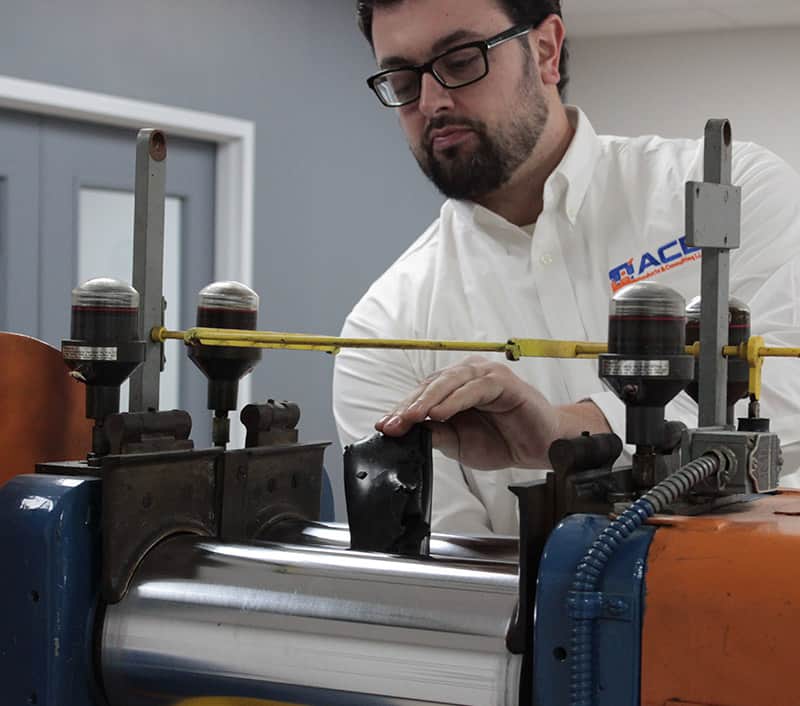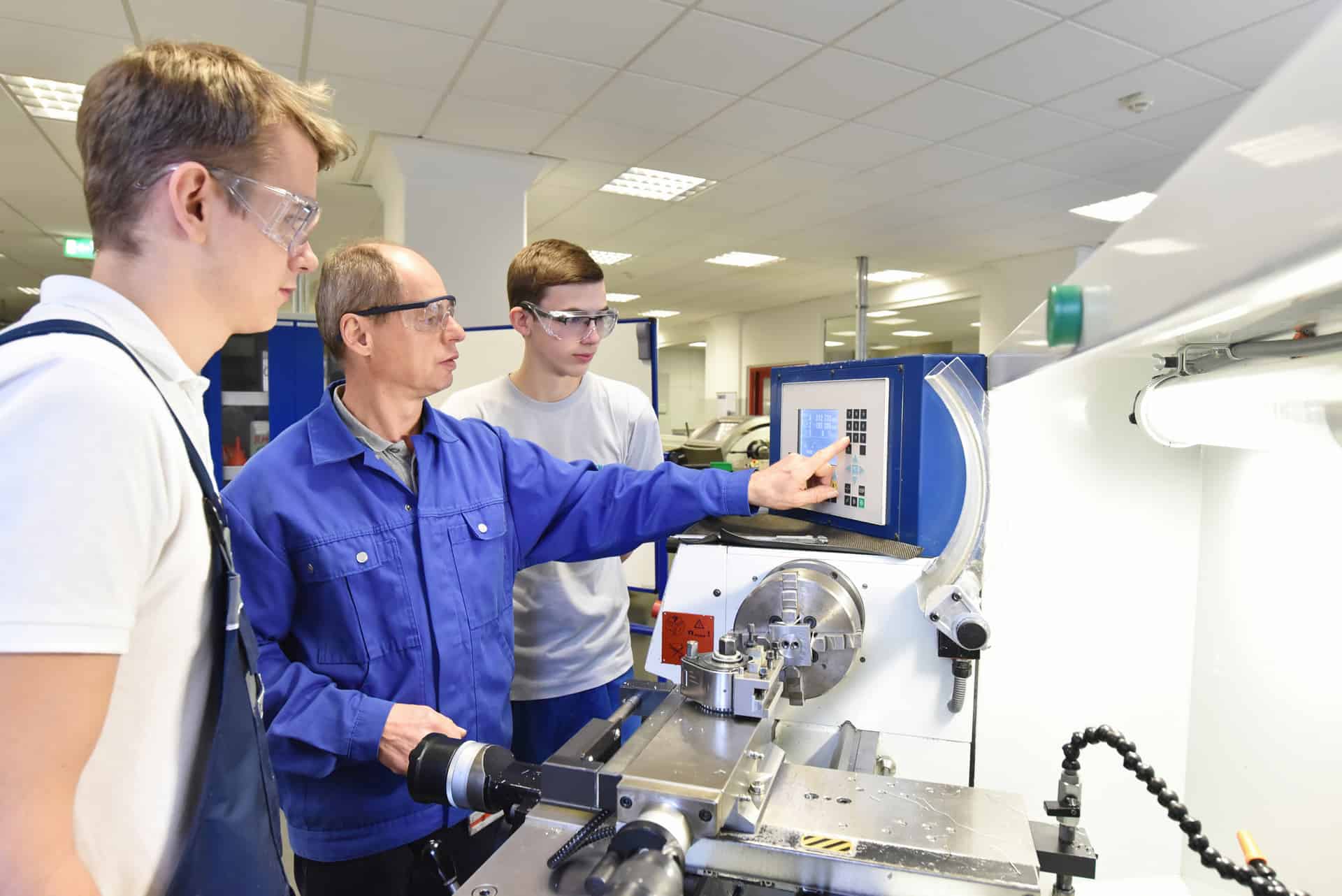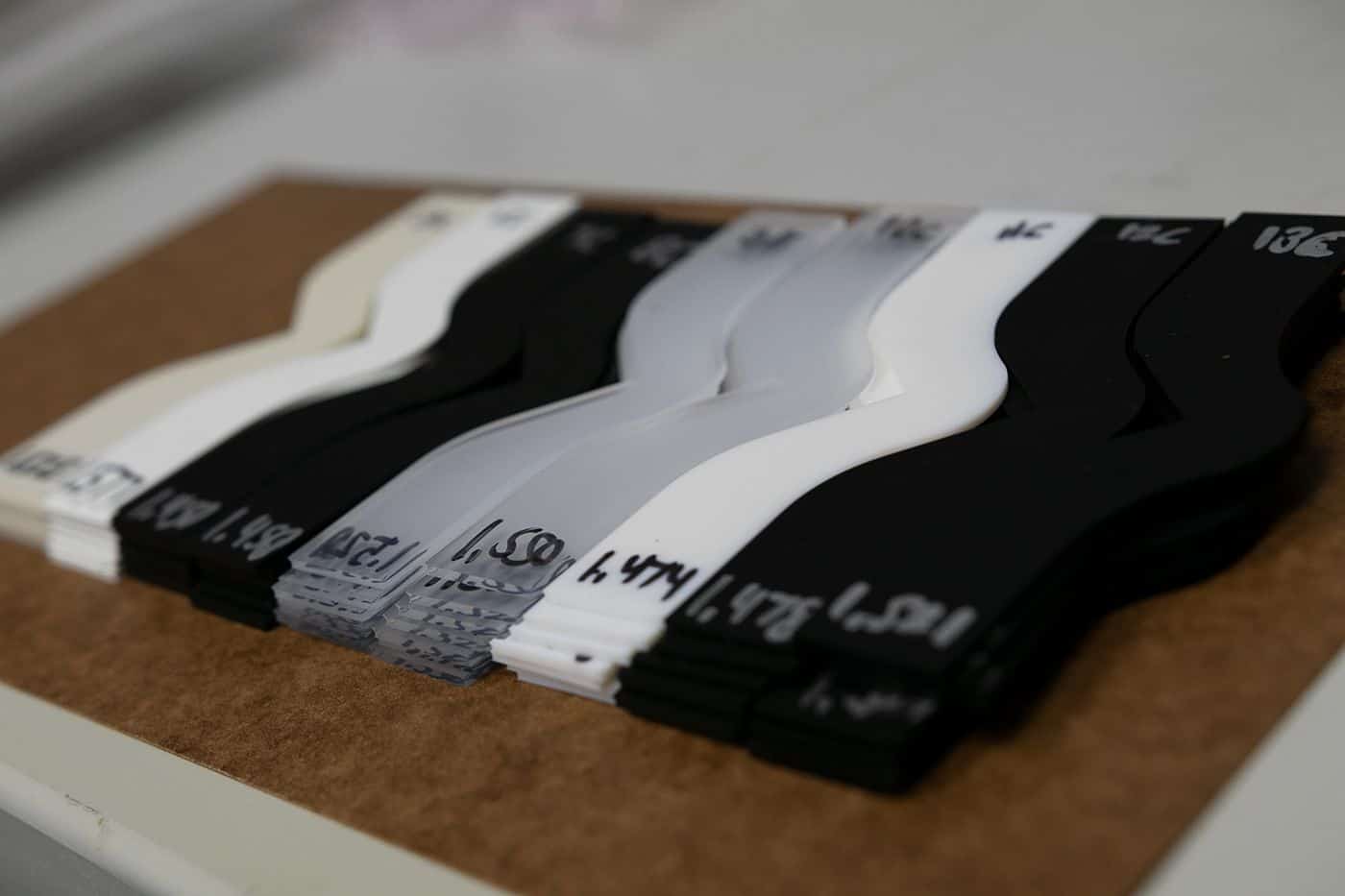What is Polymer Testing?
Polymer testing is used for the analysis and characterization of polymer materials, including rubber and silicone materials. Polymer testing can be useful for new product development, quality control, and problem solving.
Rubber and silicone testing includes a wide variety of tests ranging from simple to complex. Each serves as a window into the behavior and properties of your polymer material. If you’re looking to find out how your material will perform in heat over time, ACE might recommend a heat aging test. If you need to be sure your material is free of certain heavy metals, X-Ray fluorescence will make sure your product is compliant.
If you have a challenge, polymer testing will help you overcome it. Keep reading for the ins and outs of polymer testing, then reach out to ACE to learn more about how polymer testing can help you reach your goals.
An Overview of Polymer Testing Services
Physical Testing
Physical rubber and elastomer testing from ACE provides crucial information on your material’s physical properties. Whether your rubber needs to be tough enough for airplane tires or flexible enough to bend without breaking in its end use, physical testing delivers the info you need.
Analytical Testing
Analytical testing is less concerned with the physical properties of your material, instead focusing on its chemical makeup. Testing techniques like thermoanalytical analysis, X-Ray fluorescence, and scanning electron microscopy allow ACE’s lab technicians to understand the chemical composition of your material. You’ll receive data and insight useful for research, product development, and meeting industry standards.
Silicone and Rubber Processing
Silicone and rubber processing includes extrusion flow analysis, mixing, curing, and mold flow analysis. ACE’s operations streamline silicone and rubber processing for efficient, trustworthy, and high quality results.
Polymer Consulting Services
Technical consulting can be customized to cover a broad range of services, or take a more narrow, focused problem-solving approach. A polymer consultant is someone with high levels of expertise in the rubber and silicone industries who provides guidance, strategy, and techniques for success. At ACE, consulting services are ideal for anyone looking to streamline their processing operations, innovate a groundbreaking project, or overcome a stubborn challenge.
Rubber Industry Experts
Polymer testing is integral to any industry that relies on rubber, silicone, and other elastomers. ACE provides insight and polymer testing to many industries, including:
- Aerospace
- Automotive
- Construction
- Energy
- Consumer Goods
- Industrial Goods
- Tire
- Wire and Cable
What is a Polymer Testing Laboratory?
A polymer testing lab works to provide polymer manufacturers and producers valuable insight into their product through careful scientific testing.
Clients bring their rubber challenges to these labs to discover innovative solutions. Experienced laboratory technicians perform physical and analytical tests to learn about polymer materials.
At ACE, we work with you to create a custom course of rubber testing based on your challenges, requirements, and goals. We use a variety of physical and analytical test processes to ensure you walk away with a comprehensive understanding of your material.
How are Polymer Testing Instruments & Equipment Used?
At ACE, we use high quality polymer instruments and equipment to provide solutions to rubber challenges. By using state-of-the-art equipment, ACE can guarantee accurate results for any application.
Polymer testing is typically categorized into two types: physical and analytical testing. Both types of polymer testing require high quality rubber testing instruments and equipment to ensure results you can trust.
Popular physical tests include the following:
- Heat Aging
Used to accelerate the aging process to evaluate changes in physical properties of vulcanized rubber when exposed to high temperatures. - Abrasion Testing
Used to predict a material’s wear characteristics, as well as the potential effects on end-use performance. - Tension Testing
Used to evaluate the tensile properties of thermoplastic elastomers and vulcanized thermoset rubbers. - Electrical Testing
Used to observe the way electrical charges move through a material and the material’s surfaces to ensure safe use for the end user.
Popular analytical tests include the following:
- Scanning Electron Microscope (SEM)
Used to provide qualitative, quantitative, and thickness analysis through high-resolution imaging with a focus on a material sample’s depth and structure. - Differential Scanning Calorimetry (DSC)
A thermoanalytical technique used to determine the difference in the amount of heat required to increase the temperature of a sample. - Thermogravimetric Analysis (TGA)
Used for compositional analysis–comparison to a known material–for quality control, material screening, and other problem-solving purposes. - Wet Chemistry
A variety of techniques, including pH testing, Soxhlet extraction, and end point titrations, used for polymer and raw material analysis.
The best rubber testing equipment for you varies based on your material and end goal. Working with the experts at ACE, you can identify the best course of testing to help you innovate, meet industry standards, and improve your polymer product.
Visit our blog to learn more about our rubber testing equipment.
Polymer Testing Standards and Regulations
ACE performs polymer testing according to ASTM’s polymer testing standards for credible results across industries. ASTM is the American Society for Testing and Materials, the international standards organization that publishes standards for a broad range of systems and services.
ACE uses ASTM’s standards to specify, test, and assess the physical and chemical properties of polymer materials. By adhering to these standards, we deliver results that are repeatable, reliable, and widely accepted as credible. ASTM’s standards give manufacturers and their end-users confidence knowing a product is safe, reliable, and consistent.
Rubber and silicone testing with ACE helps you meet your industry’s regulatory standards through a thorough understanding of your material’s properties and behaviors.
Polymer Testing You Can Trust with ACE Laboratories
At ACE Laboratories, we pride ourselves on quick turnaround times, reliable communication, and precise, high quality polymer lab results.
We offer physical testing, analytical testing, and rubber processing, all completed in a timely manner and with your success in mind. Our expert laboratory technicians are attentive, committed, and well-versed in all things rubber and silicone. Read more about Polymer Testing and Solutions.
Have a challenge you’re ready to tackle? Contact us today to take the first step toward your solution!
In the news
A Guide to Cool Roof Systems
What Is a Cool Roof System? Traditionally, commercial and residential buildings alike have roofs made from dark materials, such as shingles and tiles. Dark roofing materials absorb more heat than lighter materials, and that heat is transferred to the building, which...
What Is FDA CFR 21 177.2600 and How Can I be Compliant?
The consumer goods industry is highly regulated, especially regarding food safety. If you’re making any kind of rubber or polymer part for machines that process food, you need to understand and comply with the FDA’s 21 CFR 177.2600 regulations. This standard is often...



